The Broke Backpacker is supported by you. Clicking through our links may earn us a small affiliate commission, and that's what allows us to keep producing free content 🙂 Learn more.
Saint Lucia is one of the Caribbean island paradises that is becoming increasingly popular with independent travellers. It’s no wonder: with its natural wonders including the UNESCO-approved twin peaks of the Gros and Petit Pitons, the island is a marvel to explore.
Combine this with pristine beaches, a laid back lifestyle, plenty of rum, street parties and Creole culture and cuisine and we have Saint Lucia – a destination that’s so much more than just all inclusive resorts. At the same time, however, it’s not quite the paradise that everybody thinks it is and you might be left wondering how safe is St Lucia?…
Violent crime against tourists isn’t unheard of and neither is petty theft. Robberies and break ins also do occur. Then there’s the natural world to worry about such hurricanes. It seems paradise comes at a price!
Please don’t let it put you off, though. We’ve created this epic guide to staying safe in Saint Lucia, so you can travel around with plenty of tips and information that will put your mind at ease. Hopefully this guide will make getting to grips with real life in this island nation a whole lot easier.

Unlock Our GREATEST Travel Secrets!
Sign up for our newsletter and get the best travel tips delivered right to your inbox.
- How Safe is Saint Lucia? (Our take)
- Is Saint Lucia Safe to Visit Right Now?
- Join our entrepreneurship retreat in Bali!
- Safest Places in Saint Lucia
- 20 Top Safety Tips for Traveling to Saint Lucia
- How Safe is Saint Lucia to travel alone?
- Is Saint Lucia safe for solo female travellers?
- More on Safety in Saint Lucia
- FAQ about Staying Safe in Saint Lucia
- So, is Saint Lucia Safe?
- Buy Us a Coffee!
How Safe is Saint Lucia? (Our take)
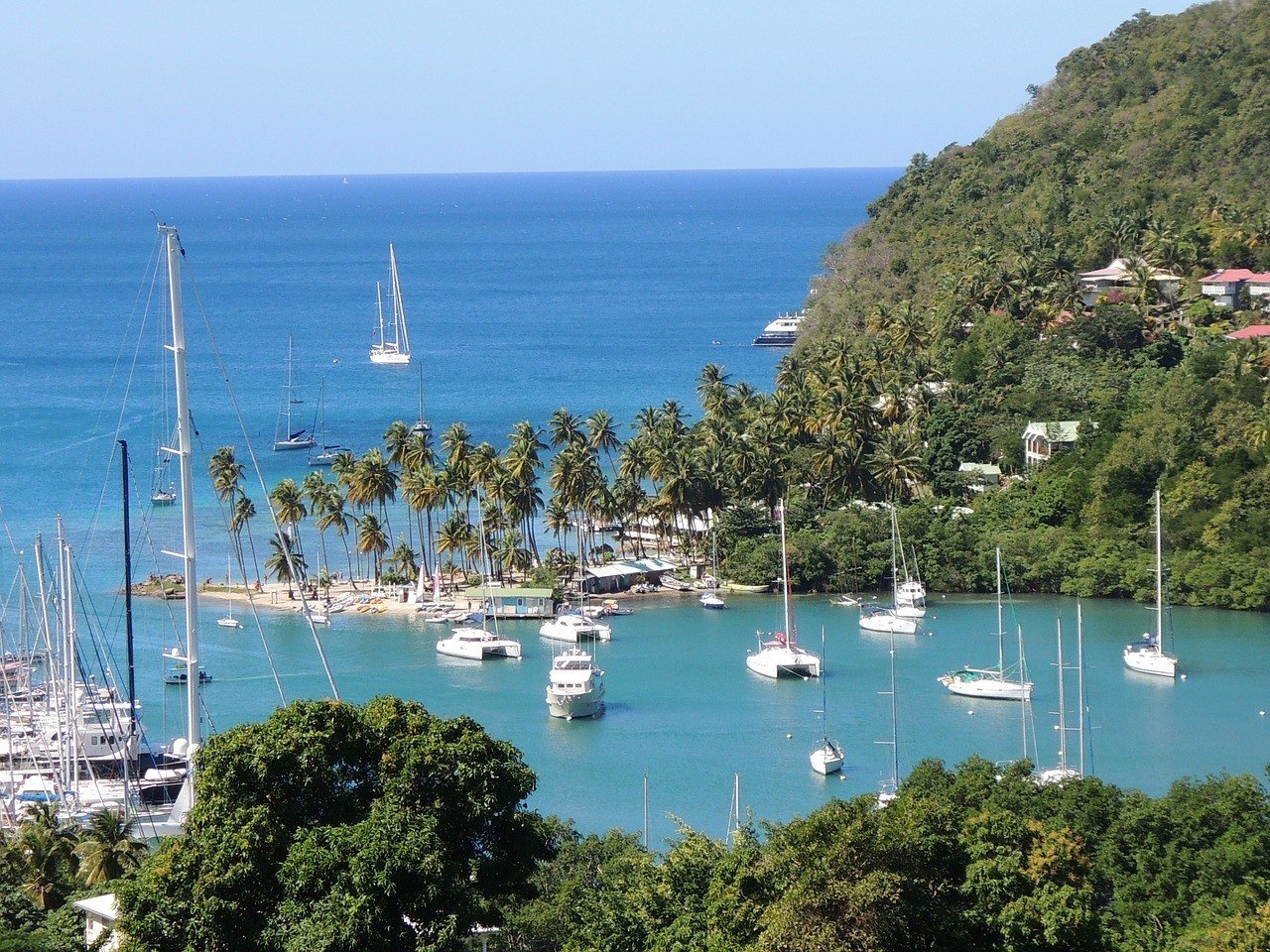
The Broke Backpacker is supported by you. Clicking through our links may earn us a small affiliate commission, and that's what allows us to keep producing free content 🙂 Learn more.
Saint Lucia is an Eastern Caribbean gem, with a volcanic landscape, plenty of beaches and rainforests thrown in for good measure. It’s a very popular destination for people who rock up on cruises and honeymooners, but independent travellers do also find their way to this island – and they have a fun time.
Of course, it isn’t all palm trees and pina coladas. There is real life on this island and there is crime, too; not just petty crime, but serious crime has made the news a few times – especially when tourists have been the targets.
Along with that, there is the natural world to be aware of. The hurricane season peaks in August/September and there are active volcanoes on the island.
That doesn’t mean that it’s an unsafe place to visit; plenty of people come here, have a blast, and then leave without any trouble whatsoever. It’s more the kind of place where local transport will be rickety and minibuses speed around winding lanes.
It’s the kind of place where you’ll casually get offered drugs (not aggressively), and locals travelling around in the backs of trucks with machetes. It’s all good.
Generally, Saint Lucia is fairly safe, but let’s get into the details…
There is no such thing as a perfect safety guide, and this article is no different. The question of “Is Saint Lucia Safe?” will ALWAYS have a different answer depending on the parties involved. But this article is written for savvy travellers from the perspective of savvy travellers.
The information present in this safety guide was accurate at the time of writing, however, the world is a changeable place, now more than ever. Between the pandemic, ever-worsening cultural division, and a click-hungry media, it can be hard to maintain what is truth and what is sensationalism.
Here, you will find safety knowledge and advice for travelling Saint Lucia. It won’t be down to the wire cutting edge info on the most current events, but it is layered in the expertise of veteran travellers. If you use our guide, do your own research, and practise common sense, you will have a safe trip to Saint Lucia.
If you see any outdated information in this guide, we would really appreciate it if you could reach out in the comments below. We strive to provide the most relevant travel information on the web and always appreciate input from our readers (nicely, please!). Otherwise, thanks for your ear and stay safe!
It’s a wild world out there. But it’s pretty damn special too. 🙂
Is Saint Lucia Safe to Visit Right Now?
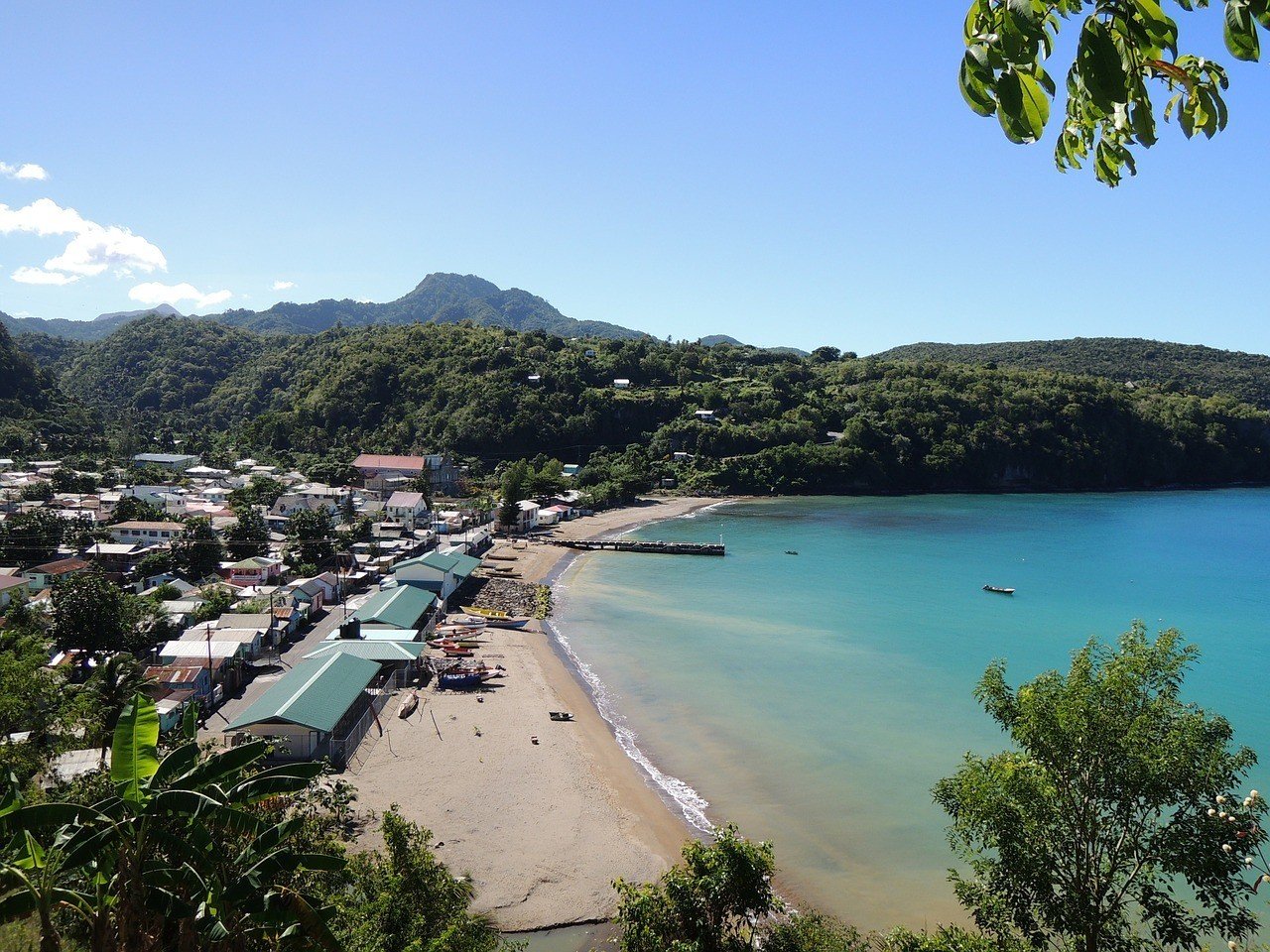
The answer is: yes, it is. “Most visits are trouble free,” according to the UK Government, “but there have been incidents of crime including murder, armed robbery and sexual assault.”
When it comes to visitors from other countries, they completely outnumber the local population. That doesn’t mean that all is good here.
Though there is nothing pressing that is particularly stopping tourists from visiting Saint Lucia right now, the gradual rise in violent and serious crime over the past few years is cause for some concern.
There have also been a number of high profile violent crimes reported from Saint Lucia, with wealthy tourists being the victims even within the confines of their own accommodation. All in all, robbery of all kinds is an issue in Saint Lucia and tourists are often targets.
In response, the Ministry of Tourism has collaborated with the Royal Saint Lucia Police to put in place a system of security at hotels, with regular checks and safeguarding measures put in place to help protect tourists from the threat of crime.
It’s good to be aware that muggings, car rental robberies, thefts from hotels, harassment, and other crimes towards tourists do happen. We’re not saying this to scare you, just to let you know that Saint Lucia isn’t a playground: it’s a real place with its own issues.
Aside from the threat of crime from other humans, there is also nature to contend with, which can cause some safety issues on the island.
Hurricane season runs from June to November and can batter this part of the Caribbean; if you are heading to Saint Lucia at this time of year, you should pay attention to the local news and follow international advice. Be aware of flooding, transport disruptions, flight cancellations.
Saint Lucia Travel Insurance
ALWAYS sort out your backpacker insurance before your trip. There’s plenty to choose from in that department, but a good place to start is Safety Wing.
They offer month-to-month payments, no lock-in contracts, and require absolutely no itineraries: that’s the exact kind of insurance long-term travellers and digital nomads need.
SafetyWing is cheap, easy, and admin-free: just sign up lickety-split so you can get back to it!
Click the button below to learn more about SafetyWing’s setup or read our insider review for the full tasty scoop.
Join our entrepreneurship retreat in Bali!

Ahoy friends, Will here! Introducing a very special project that involves YOU – An 8-day immersive experience in Bali, where I have been living for 7 years now.
If you’re passionate about freedom and designing your dream life, this is your chance to join like-minded folk on the same path and learn from my own wins, losses and lessons over my fifteen years of entrepreneurship, whilst soaking in the best of beautiful Bali.
Expect daily workshops, recharge practices, intention setting and fire ceremonies and perhaps a cheeky game of pool against myself, the one and only undefeated pool legend. All while experiencing the island’s best-kept secrets ?
Safest Places in Saint Lucia
When choosing where you’ll be staying in Saint Lucia, a bit of research and caution is essential. You don’t want to end up in a sketchy area and ruin your trip. To help you out, we’ve listed the safest areas to visit in Saint Lucia below.
Rodney Bay
Rodney Bay, or Rodney Bay Village is a little paradise spot in the North of Saint Lucia. Known for the laid-back vibe, super white sand beaches and quite a lively nightlife as well, it’s the ideal spot for first-time visitors or those that want to stay safe AND enjoy a bit of entertainment.
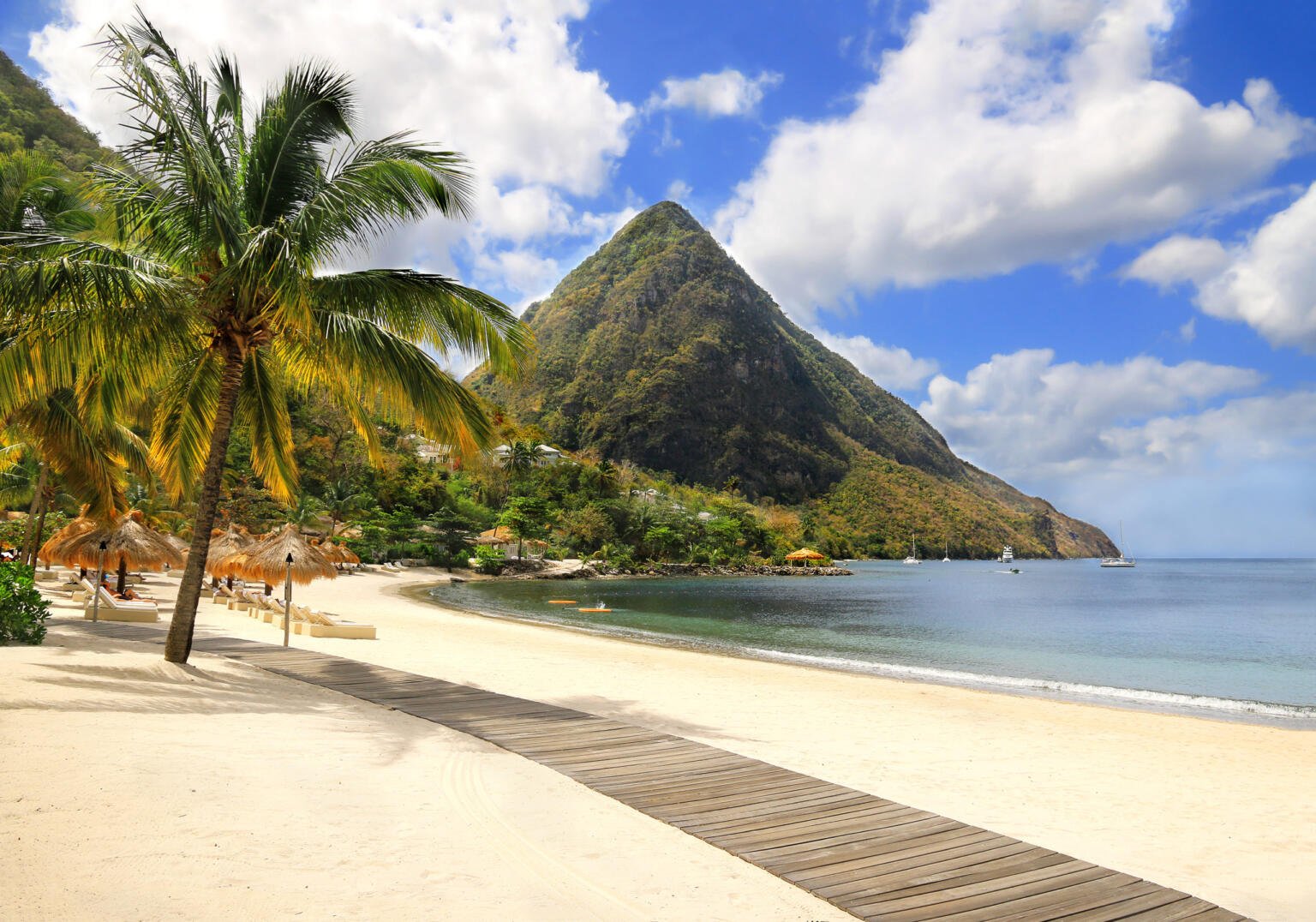
It’s actually a man-made lagoon and you can find plenty of great accommodation options here. It’s one of the major tourist hubs, which means that police presence and security is higher than in other parts of Saint Lucia. While you’ll still need to keep your wits about you, a visit to Rodney Bay should be pretty safe and chill.
Pigeon Island and Cap Estate
Just like Rodney bay, Pigeon Island and Cap Estate are located in the North as well. It’s a bit more high-end than the first location. You can also find a massive National Park here. The park is filled with stunning nature, incredible beaches and naval ruins. You can even find some interesting pirate and war history here.
A bit further from Pigeon Island, you can find Cap Estate. With luxurious properties and a massive golf course, this might be more a holiday destination than the typical budget backpacker hotspot. Still, it’s one of the safest and most relaxed areas in Saint Lucia.
If you look closely across the sea you might even see the island of Martinique across the sea! Martinique is also a cool place to stay if you have the time to visit.
Soufriere
Soufriere is a super popular destination in the South of Saint Lucia, thanks to plenty of attractions, activities and beautiful beaches. Note that the sand is a little bit darker in the South, so don’t expect blinding white sand. However, this makes the South a little bit more remote and therefore more peaceful and relaxed. There’s not as much nightlife as in the North, which makes it ideal for families and couples.
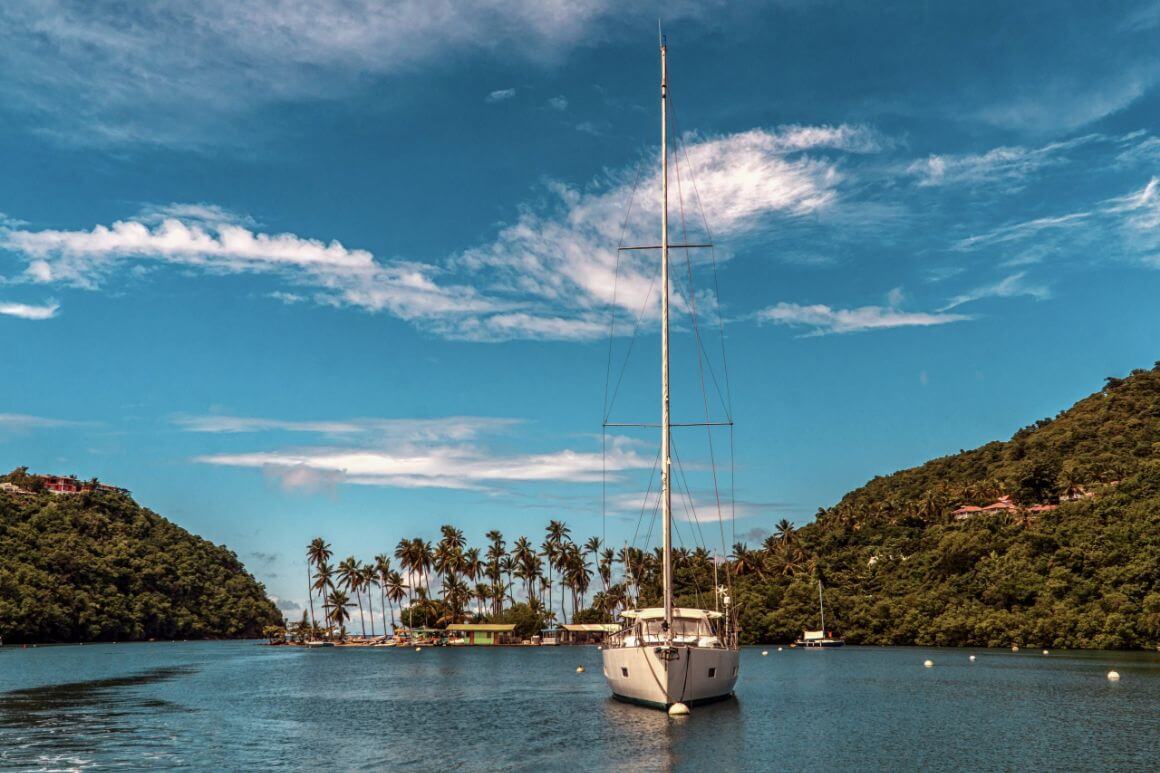
While hotels and resorts are pretty expensive, you also get plenty of guesthouse and homestay options. This makes Soufriere especially popular among budget backpackers as well. From here, you can easily explore the rest of Saint Lucia’s South. Just keep in mind not to drive after dark!
Places to avoid in Saint Lucia
Unfortunately, not all places in Saint Lucia are safe. You need to be careful and aware of your surroundings pretty much anywhere you go in the world, and the same goes for visiting Saint Lucia.
Areas with high rates of crime are the capital, Castries – including the neighbourhoods of Wilton’s Yard, Leslie Land, Chaussee Road, Marchand, Morn du Don – as well as the waterfalls in Anse la Raye.
As we mentioned above, staying out at night, no matter where you are located is a really bad idea. If possible, avoid it completely or opt to go out with a big group.
It’s a bit of a no-brainer, but if an area or a street looks like tourists don’t belong here, you should probably stay away too. Stick with the busy tourist areas or get yourself a guide. Wandering off alone is pretty much the worst thing you could do.
It’s important to know that Saint Lucia can be a safe place, but a bit of caution and research before you start your travels will go a long way. If you want to increase your safety during your stay, read on for our insider travel tips. Stick to those and you won’t have a single issue in Saint Lucia.
Quick tip: Plan everything in advance!
Best Saint Lucia Tours: Check out the coolest tours in Saint Lucia
Best Places to Stay in Saint Lucia: Check out top rated hotels and hostels in Saint Lucia
Best Transport in Saint Lucia: Book the best transport in Saint Lucia
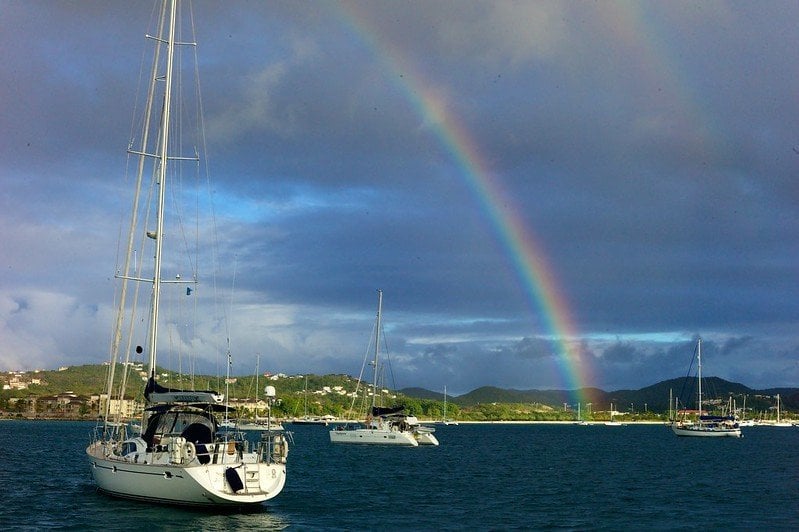
Photo: Jon Callas (Flickr)
Saint Lucia may seem like a scary place from what we have already said, but in fact, nothing could be further from the truth. It is a friendly, laid back Caribbean destination where locals are up for a chat and where the weather is (almost always) fine.
However, there are some things that you should keep in mind when you are visiting to make sure that you have the as safe a trip to Saint Lucia as possible…
- Don’t wander around at night by yourself – especially in isolated areas.
- It’s better to take a taxi than walk anywhere at night – we have more tips on Saint Lucian taxis later on in this article
- Be careful if you’re going out partying in local spots – you might become a bit of a target; read reviews online of good spots
- Be prepared when you head out hiking – the heat can really get to you, so make sure you’re prepared and have plenty of H20
- Be direct with street sellers – if you don’t want to buy anything. A polite “no, thank you” will suffice – or ignore and walk on
- Protect yourself from street crime – don’t make yourself a target! Protect your valuables while traveling by leaving them at home or (safely) in your accommodation.
- Don’t flash your cash – don’t carry around a huge wad of cash with you
- Try to blend in – obviously we’re not saying “be a local”, but we strongly suggest not dressing like a tourist
- Take care when swimming in the sea – there can be deceptively strong currents and there aren’t always lifeguards or warning flags. If you’re not sure, you should ask a local
- Stay away from drugs – there are severe penalties for all drug offences
- Consider a “throw down” wallet – it may seem excessive, but having a dummy wallet filled with a few dollars that you can hand over in the event of a mugging is better than only having your actual wallet filled loads of money and your credit cards
- Wear a travel money belt – more on this later, but having your money hidden on your person means having no wallet to worry about in the first place
- Leave your camouflage clothing at home – it’s an offence (i.e. against the law) to wear it here, even for children
- Hands off – public displays of affection between any type of couple will raise some eyebrows.
- Beware of ATMs and foreign exchange places – only withdraw and change money at reputable vendors
- Get yourself a good travel sim card that works in Saint Lucia – we don’t need to explain the benefits of having a phone with data!
- Cover up against mosquitoes – there is Dengue fever present, as well as Chikungunya virus and a risk of Zika virus. So cover up with loose clothing at dusk, use repellent with DEET, because who wants to get bitten by them anyway?
- Monitor local weather between June and November – hurricane season can cause havoc
- Respect the sun – don’t lay out in the hottest part of the day, cover up as much as possible, stay hydrated, wear a hat, slather on sunscreen because (trust us) sunstroke is horrible
- There are snakes in Saint Lucia – one venomous one in particular: the Fer de Lance (brown, black and pale yellow bands with a big head). Watch where you tread!
There you have it – a whole lot of safety tips for travelling around Saint Lucia to bear in mind when you touch down on the Caribbean island.

Combination Padlocks
It doesn’t get more essential than this! Not only do they allow you to lock up your backpack wherever and whenever, but they’ll also come in handy if you show up to a room without a lock. The combination style means you don’t have to worry about losing a small key either!

Apple Airtags
This really might be one of the best products Apple has ever made – the peace of mind it will give you when you inevitably have to check a bag is worth the price tag. I’ve found them to be super helpful and reliable, and you can put them in so many different things

Samsung Galaxy Smart Tags
The same epic concept, except for Androids

Garmin inReach Mini 2
This little satellite communication device is a must if you plan to get off the beaten path. It allows you to stay in touch with family and friends even if there’s no cell service, AND it has a SOS feature that can be activated anywhere. It even gives weather updates, a literal lifesaver when off grid.
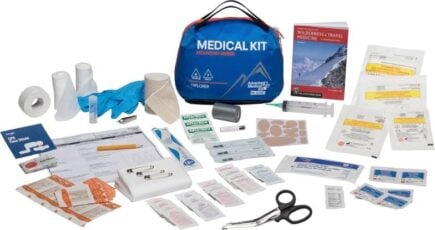
First Aid Kit
A good first aid kit should always be on your packing list, even if you’re just headed to a resort. It’s good to fill it with essential medicines as well as equipment, you never know when you’ll be caught out!
How Safe is Saint Lucia to travel alone?
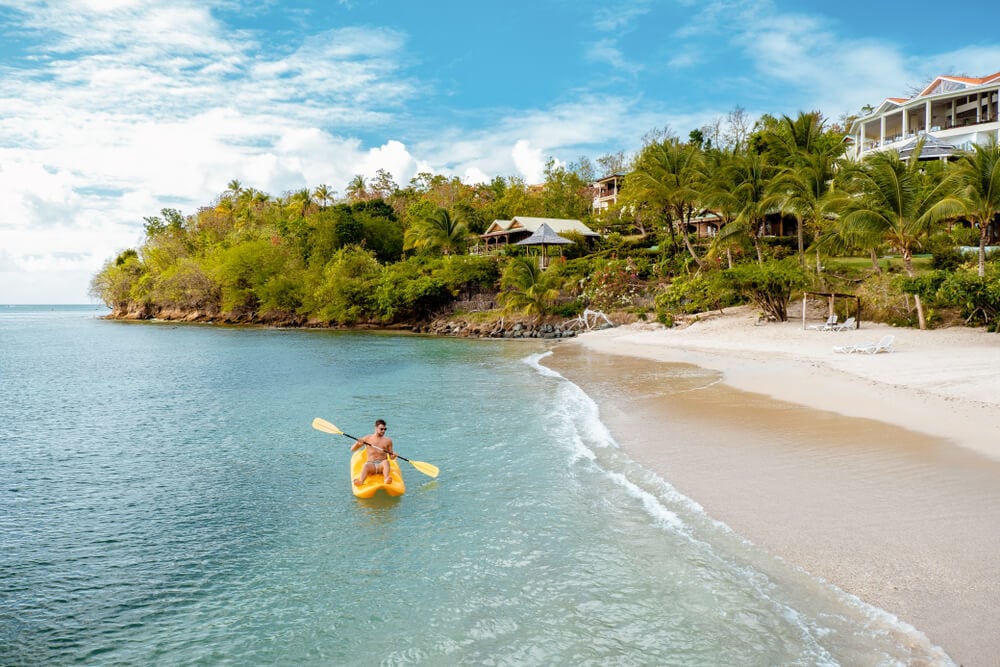
Solo travelling is great. We are all for it. Not only is it rewarding to grow as a person whilst travelling alone, but it can also lead you to get in touch with communities and local life that you might miss out on otherwise.
This Caribbean island is definitely known as a couples getaway and family holiday destination. However, it can be done and it is safe to Saint Lucia travel alone. Here’s how…
- Whilst there aren’t many party hostels, or many hostels at all for that matter, there are some good options for solo travellers out there. Saint Lucia has a number of family-run hotels and guesthouses for travellers and backpackers on a budget.
- With that in mind, insider knowledge is key. Ask a local friend, the staff at your hotel, resort, or hostel – even your guide or taxi driver – for their local tips on where to go, where’s safe, what to eat and what to do.
- Get your phone stocked up with apps. We’re are talking everything from earthquake apps and Maps.me (offline maps), to Google Translate, currency exchange apps (like XE), and online banking.
- When you are walking around in local areas, walk around purposefully like you know where you’re going (even if you don’t). Avoid walking around looking like a lost tourist who has no idea what’s going on because, chances are, this will make you a target.
- Let people back home know your travel itinerary and tell them if it changes, or if you plan to stay in just one place. Having your friends and family back home know where you are is a lot safer than nobody knowing where you are.
- Keep emergency numbers saved in your phone: we’re talking your hotel, a taxi company, emergency services, your parents. These are numbers that you’ll want to be able to call without scrolling through your contacts, so save them with a # before their name to make sure they appear at the top of your contacts.
- If you’re out and about on a day trip or out exploring by yourself, make sure you are back at your accommodation before dark – especially if you have no contingency plan for after dark travel.
- Travel with enough money. Take credit cards, back up credit cards, a dummy wallet with old credit and debit cards (and a few notes) in it… Just make sure that you are financially stable whilst you’re away, because there’s nothing quite as stressful as trying to micromanage your bank from afar – and those calls get expensive, too!
- If somebody does try to rob you, just hand it over. Your petty cash is not worth dying for, so diffuse the danger by just giving them what they want.
- Be careful with going out at night partying. You are just going to put yourself in danger if you go out by yourself. If you do want to do this sort of thing, head out as a group with likeminded people from your accommodation – never alone.
- Speaking of which, try to hit up beaches outside of your resort in groups, too; unattended items very easily go missing (especially when you’re by yourself), so make sure you travel around in a group.
- Keep your important documents, including your passport, safe. They’re important for a reason. Don’t take it out and about with yourself.
Make sure you stick to the basic tips of safe travel: don’t put yourself in bad situations, stay in secure accommodation, and always let people know what you’re up to.
Is Saint Lucia safe for solo female travellers?
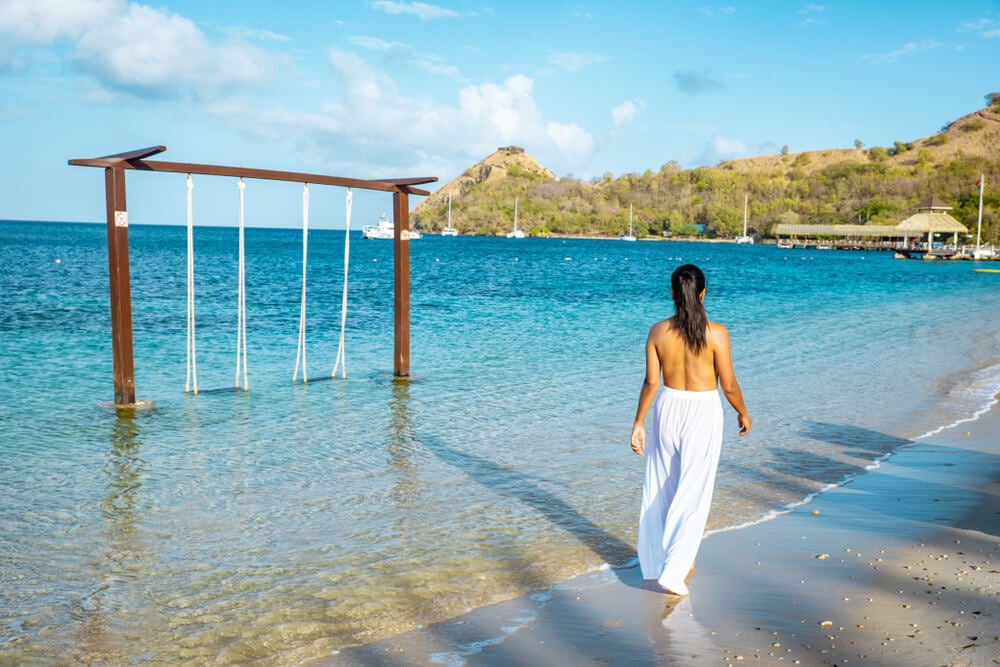
Saint Lucia may not be the best destination in the world for solo female travellers. Yes, it’s true that you have to be more than a little bit careful in certain areas, however, you should still be fine.
There are all sorts of ways to enjoy Saint Lucia as a solo female traveller, so let us run through those with you so that this laid back destination seems like a less daunting option…
- It’s a good tip for solo female travellers to not go where no one else goes. If a beach isn’t busy with locals or tourists, don’t go; if a road is completely deserted in a town (even in broad daylight), don’t walk along it by yourself. Remote areas like this are just riskier. End of story.
- Get yourself a guide. It’s good company, a go-to local expert and will act as security. However, do make sure to get a fully vetted, certified guide and only book through a reputable agency even if it means paying a bit more.
- Be very careful if you want to go out partying. It’s really not a good idea to go out by yourself, so if you want some night time fun, it’s best to go as a group.
- Dress to fit in as much as possible. It’s not a good idea to walk around wearing flashy and/or revealing clothes when you’re a solo female traveller. Err on the side of modesty.
- Choose your accommodation wisely. There are a lot of options, from Saint Lucia’s gorgeous private villas or all-inclusive resorts to a family-run guesthouse or budget hotel. Make sure that you read reviews super carefully.
- Once you arrive at your accommodation, make sure that it is secure. Make sure that your doors and windows can lock. Make sure that those locks are adequate.
- We always recommend that solo female travellers trust their gut. Being a female you will most likely be used to being on guard anyway, but that feeling comes into play especially when you’re in a situation that feels like it isn’t right.
- One great thing about travelling solo as a female is the amount of female-specific resources there are on the internet. Get online and join groups like Girls Love Travel and Women Who Live On Rocks (that’s women who live in the Caribbean), ask questions, for advice, and general tips. People often want to meet up on these groups, so take them up on it and get shown around a local area.
- Make sure your phone is charged at all times and that you have a data plan that will last you. Both these things will be crucial in case of emergencies, so maybe get yourself an extra battery pack and pick up a local sim if you need it for the data.
For any sort of solo traveller, Saint Lucia doesn’t exactly stick out as the number one destination. It seems like, and in some ways is, more of a place for cruise ships, couples, honeymooners and families who stay at all-inclusive resorts. However, solo travellers do come here.
More on Safety in Saint Lucia
We’ve covered the main safety concerns already, but there are a few more things to know. Read on for more detailed information on how to have a safe trip to Saint Lucia.
Is Saint Lucia safe to travel for families?
Despite the levels of crime, Saint Lucia is actually perfectly safe for families to visit. With all of its all-inclusive resorts, hotels and Airbnbs, you will have no trouble having a comfortable adventure when you and your children visit this Caribbean island.
There is plenty going on here to keep both adults and children entertained during your vacation – that means nobody is going to be getting bored here.
Although there’s not a ton of children specific attractions located on the island (don’t expect crazy amusement parks and soft plays), there is a lot on offer for a fun-filled whale of a time.
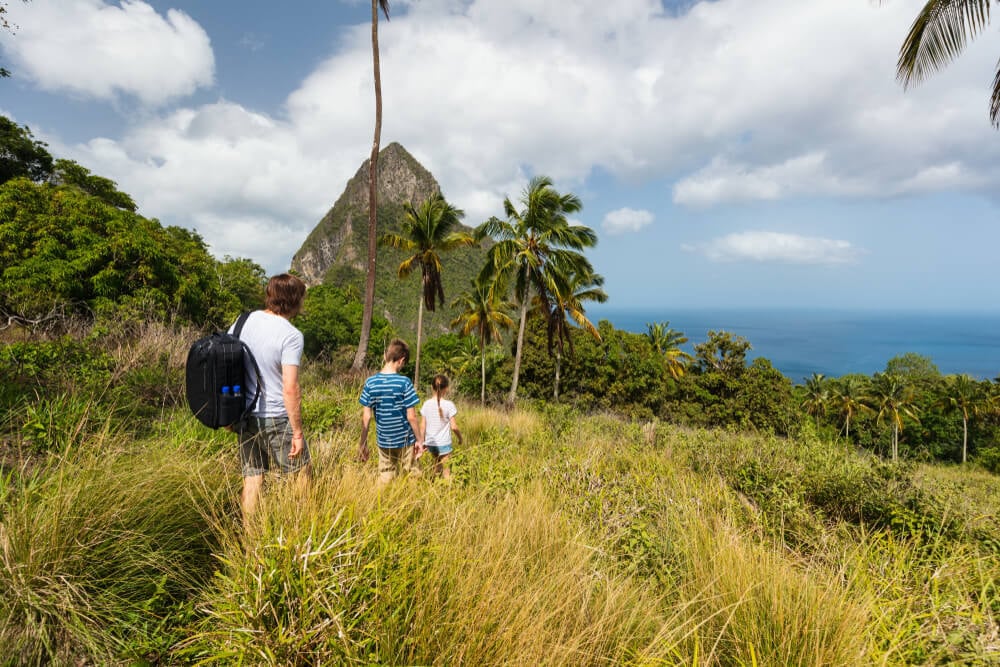
When it comes to safety, pay attention to the weather, not just in terms of hurricane season and downpours, but the sun.
Young children are affected much more than adults by the symptoms of sunstroke. Ensure that your children don’t spend too long in the sun, take frequent shade breaks, apply sunscreen and are covered up with sun hats and T-shirts.
Another thing to note is the necessity of protecting against mosquito bites. Again, children are more at risk than adults, so ensure to use a child-friendly mosquito repellent, burn mosquito coils (if possible), and make sure your little ones are covered up.
When it comes to food, don’t worry: there will be plenty on offer for even the pickiest of eaters at the all inclusive resorts and hotels. That said, there are plenty of places to eat outside of the resorts which are family friendly and cater to children, such as La Petit Peak in Soufriere, with local Creole food and great views.
Other than that, being such a well-trodden destination – especially for families – you should have absolutely no worries if you’re planning a trip to Saint Lucia!
Is it safe to drive in Saint Lucia?
Driving in Saint Lucia is not always straightforward, but it can be done. They drive on the left hand side of the road here (good news if you’re from the UK) and the main roads of the island tend to be in a pretty good state.
To be able to drive in Saint Lucia, first of all, you will need to purchase a Temporary Driving License; you can buy these at the car rental company you plan to use and costs $22 USD. However, by some accounts, it seems as though some car rental agencies are accepting International Driving Licenses.
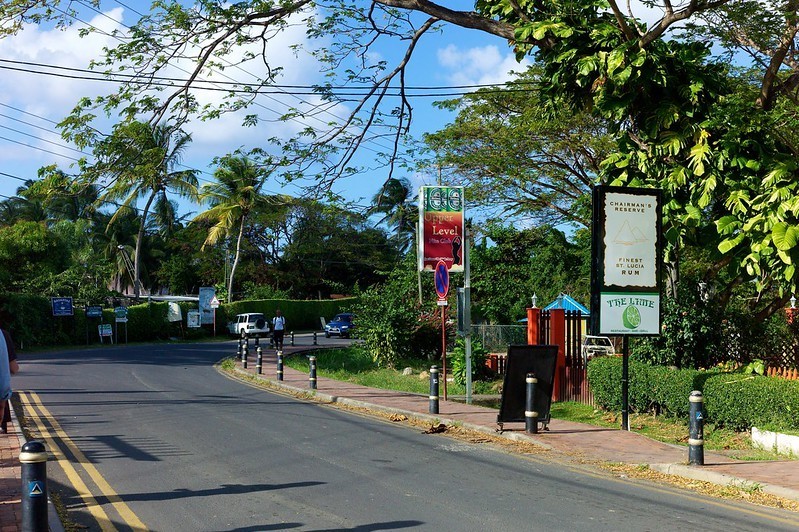
Hiring a car is most easily done at the airport or in a larger town (we would recommend pre-booking, for ease and possible savings). Note that you have to be over the age of 25 years in order to rent a car, and have at least 3 years worth of driving experience under your belt.
Speaking of hazards, when driving be careful at night time; in fact, it’s best not to drive after dark as a lot of the roads are unlit and there are hazards that you will be unable to see.
Roads can also be quite slippy after a heavy downpour, so take extra care when heading out after rain.
Though you will notice pedestrians standing at the side of the road trying to get a lift (travelling by hitchhiking is fairly common in Saint Lucia), it’s not a good idea for you – a tourist – to be picking up passengers. As a side note, make sure you keep your car doors locked when you’re driving.
It is pretty safe to drive in Saint Lucia; you can do it and it is pretty fun to do so, but unless you have the necessary experience or you love driving, we would recommend sticking to taxis.
Is Uber safe in Saint Lucia?
No Uber here!
You’re left with either using local taxis or trying out the recent addition to the private transport scene in Saint Lucia: PayCab.
This is an app that you can download that, not surprisingly, works like Uber. It partners you with licensed taxi drivers and any qualified driver across the island.
It began in Antigua in 2018 and helps people earn a second income. Apparently they have strict eligibility guidelines in place, but being such a new company it’s difficult to tell at this stage just how legitimate and effective PayCab ends up being on the island.
Are taxis safe in Saint Lucia?
Taxis are a pretty standard way to get around in Saint Lucia. There are a load of licensed taxis who will ferry you around the island pretty comfortably… and a load of taxis which aren’t licensed, too.
You can pick up a taxi at the airport, at the harbour, in front of hotels, at taxi ranks in towns – those sorts of places.
Be aware, however, that they are not metered. Instead, there are standard taxi fares between (most) destinations on the island, but it is important to agree on a fare in the local currency before you set off on your journey.
Rates can vary depending on a number of factors such time of day, what day it is, whether it’s a holiday or not, how much luggage you have, and how many people are in your party. Basically, the consensus is that the drivers just make the rate up on the spot, so it’s important to don your haggling hat and negotiate a good price.
Authorised taxis can be spotted by their light blue number plate with a “TX-” at the start of the registration number.
Apart from occasional scams, taxis are a good way to get around. In fact, in many cases, you can arrange for a taxi driver to take you around for the day, which is something that can be organised through your accommodation and a great way to see the island with a local.
Taxis are safe in Saint Lucia, for the most part, there aren’t too many scams going on – the most unsafe thing you could do is get into an unlicensed taxi.
Is public transportation in Saint Lucia safe?
To be honest, public transportation in Saint Lucia isn’t that developed. Your only option is a bus – minibuses, to be exact.
If you want to get out and about and see the island’s culture and soak up local life, then you’re probably going to want to take advantage of the island’s minibus network.
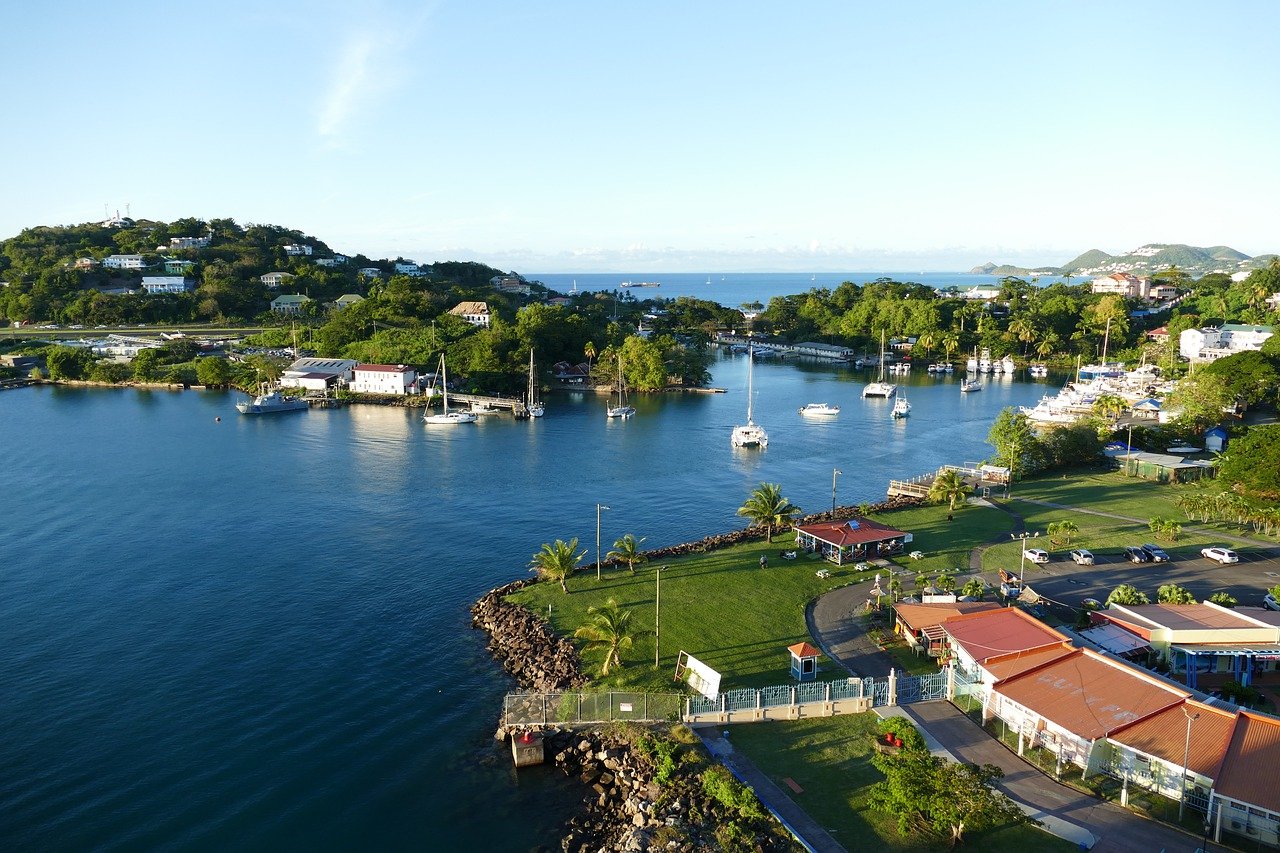
In towns and urban areas, the bus will stop at bus stops, but if you’re somewhere a little rural between towns there won’t be any specific bus stops. In these instances, if you want to catch a bus, you’ll have to wave one down. When you want to get off, you simply say, “Stopping, driver!” It’s as simple as that.
There are, in fact, three major bus routes that run around the island: the Vieux Fort to Soufriere route; the Soufriere to Castries route; and the Castries to Vieux Fort route.
It’s generally pretty easy to get around if you know what you’re doing. A big tip from our side would be to ensure you can make your way back to your accommodation before the buses stop running.
Another way to get around is a water taxi. You can hop on one of these on the west side of the island. The routes for this water-based system of public transport usually run between Rodney Bay in the north to Soufriere or Marigot Bay in the south.
To conclude, the public transportation in Saint Lucia is safe. Just be aware of your belongings, try not to get lost, plan routes ahead of the journey, and make sure you are able to get on a bus to your accommodation before they stop running.
Is the food in Saint Lucia safe?
The Caribbean islands have some pretty tasty food on offer and Saint Lucian cuisine is no different. The food on this island is full of deliciously exotic fruits, exciting spices and succulent meat. The Creole culture means a mouthwatering mix of European and African cuisine.

Here’s how to eat your way around like a pro…
- Your hotel will most likely offer an abundant array of dishes for breakfast, lunch, dinner and everything in between. Whilst this is all well and good, sometimes what’s been sitting around in a metal tray all morning won’t be as good for you as, say, a freshly cooked plate of Creole cuisine from outside your resort compound.
- Make sure to eat at places where food has been freshly cooked; if you can see something being fried up right in front of you, chances are it won’t make you feel ill later on.
- If you want to go somewhere local to eat, then make sure you go somewhere that’s filled with locals. If local people are filling up the place, then it should be good.
- Though it’s not always possible, try to choose places to eat that look clean. At the same time, if there’s a clean place with no customers next to a place that looks rougher around the edges, but which is packed with people, chances are the “dirty” one will be a better bet.
- When you eat is a factor in how good the food will be, too. Going at lunchtime will mean a high turnover of customers, a hot grill, and things being freshly cooked.
- Don’t go all in! We know the food is amazingly tasty here, but the spiciness of it all, coupled with the probably extreme change in diet with eating food you’re not used to, can do crazy things to your stomach.
- This is very simple tip, but it’s a good one: wash your hands. It’s a no-brainer.
- Some dishes to try: accra (fried fish, usually salted cod, served with greens), green fig salad (like a potato salad, but with boiled green bananas in place of potatoes), the national dish of green figs and salted fish (unripe bananas and preserved fish), French-influenced bouyon (a red bean soup with meat and vegetables), and cocoa tea and bakes (breadfruit served with chicken or fish).
If you’re at all a foodie worth your salt, you should head out and explore the culture of the island by trying out its national dishes; not only will it blow your tastebuds away, but you may meet some friendly locals along the way. Always finish up with a Piton – the local lager here.
Can you drink the water in Saint Lucia?
You can drink the tap water in Saint Lucia. It’s chlorinated and totally safe to drink.
Don’t add to the world’s plastic problem and instead bring a refillable water bottle, where you can fill up at your hotel or accommodation as much as you want; they may even have filtered water, too.
If you feel like being on the extra safe side, boil your water vigorously for a minute or more – though it really doesn’t need to be done.
Is Saint Lucia safe to live?
More of a vacation destination than somewhere that’s famous for being a liveable expat haven, Saint Lucia is – in fact – a pretty safe place for people to be living.
As with a lot of nations within the Caribbean, there are issues with crime and poverty. Living somewhere is often very different to vacationing there.
A good place to base yourself if you are a foreigner looking to move here is somewhere between Cap Estate and Rodney Bay. Bonneterre is also nearby and has a mix of easy access to entertainment and a population of young professionals and young families.
There’s a lot of nightlife you can get involved with in Saint Lucia, and the nature is always beautiful to explore – from the rainforests of the interior, to the beaches. However, that natural world is offset by human problems like a high unemployment rate and not enough jobs to go around.
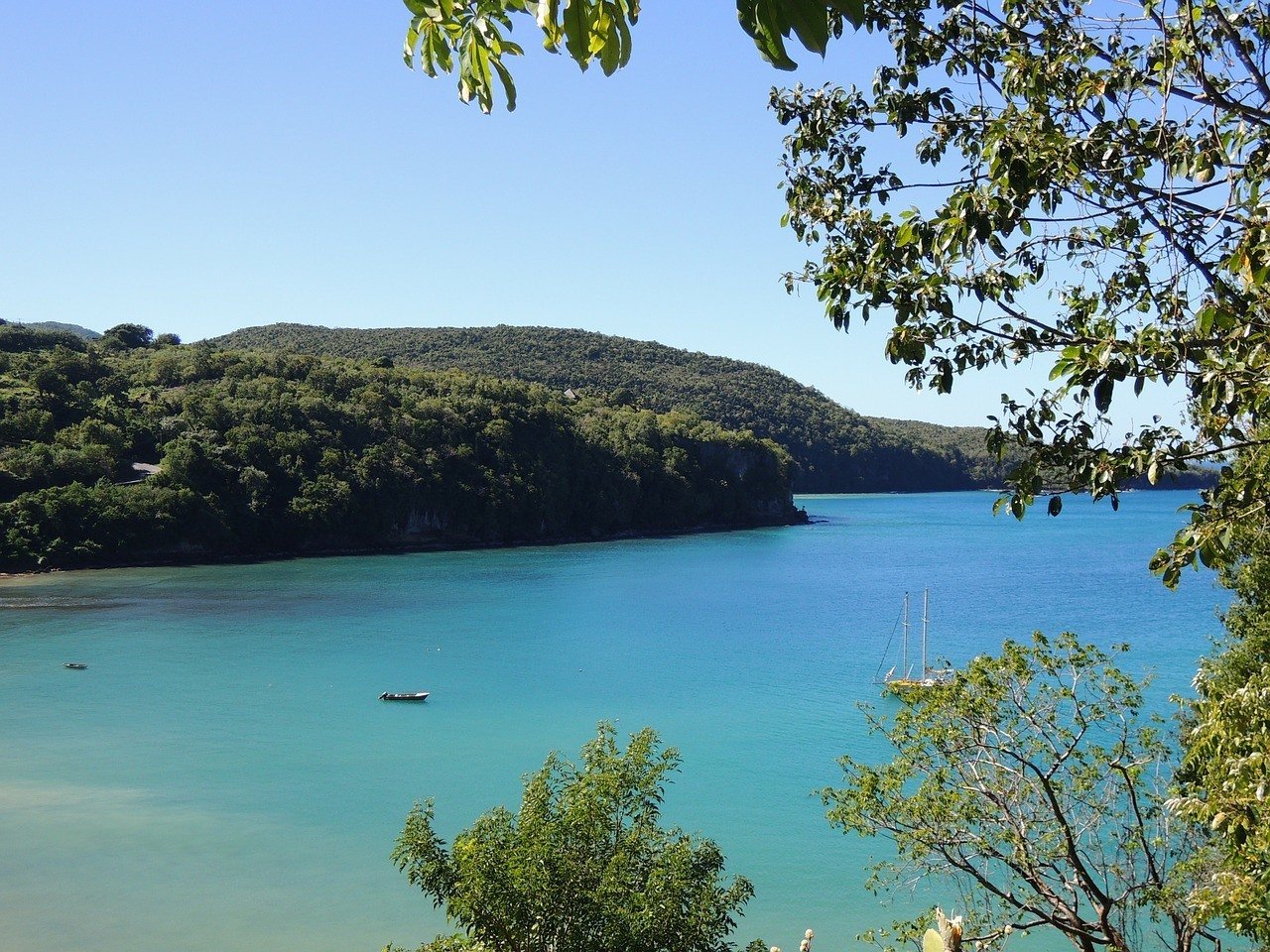
Jobs aren’t easy to come by on the island. It’s probably a good idea to be a digital nomad, already employed by somebody on the island, or otherwise remote working.
As a tourist visiting the island, you are unlikely to encounter crime. However, the reality is that the longer you’re somewhere, the more likely something is to happen.
Generally, the people are pretty laid back and friendly. There’s big rum drinking culture here and beer is abundant too.
The best thing to do if you’re planning on staying on Saint Lucia for the foreseeable future is to head online, check out expat groups, Facebook pages, ask questions and get some insider knowledge.

A new country, a new contract, a new piece of plastic – booooring. Instead, buy an eSIM!
Jetpac eSIMs work just like an app: you download it, pick your plan, and BOOM! You’re connected the minute you land. It’s that easy.
Read about how e-Sims work or click below to see one of the top eSIM providers on the market and ditch the plastic.
Grab an eSIM!Is it safe to rent an Airbnb in Saint Lucia?
Renting an Airbnb in Saint Lucia is a great idea. And it’s perfectly safe, as long as you read the reviews. Staying at an Airbnb during your trip will also open up new possibilities and options to experience the country. The local hosts are known to take great care of their guests and give the absolute best recommendations of what to do and what to see. Local knowledge always goes a long way, so be sure to reach out to your hosts if you’re unsure about how to fill up your Saint Lucia itinerary!
On top of that, you’ll stay safe with the reliable Airbnb booking system. Both hosts and guests can rate each other which creates a very respectful and trustworthy interaction.
Is Saint Lucia LGBTQ+ friendly?
Saint Lucia used to rank as one of the worst LGBTQ+ travel destinations worldwide. However, times have changed a little bit. While it’s still not openly accepted, in fact, even hetero partners can’t show affection in public, you won’t be put into prison for being gay.
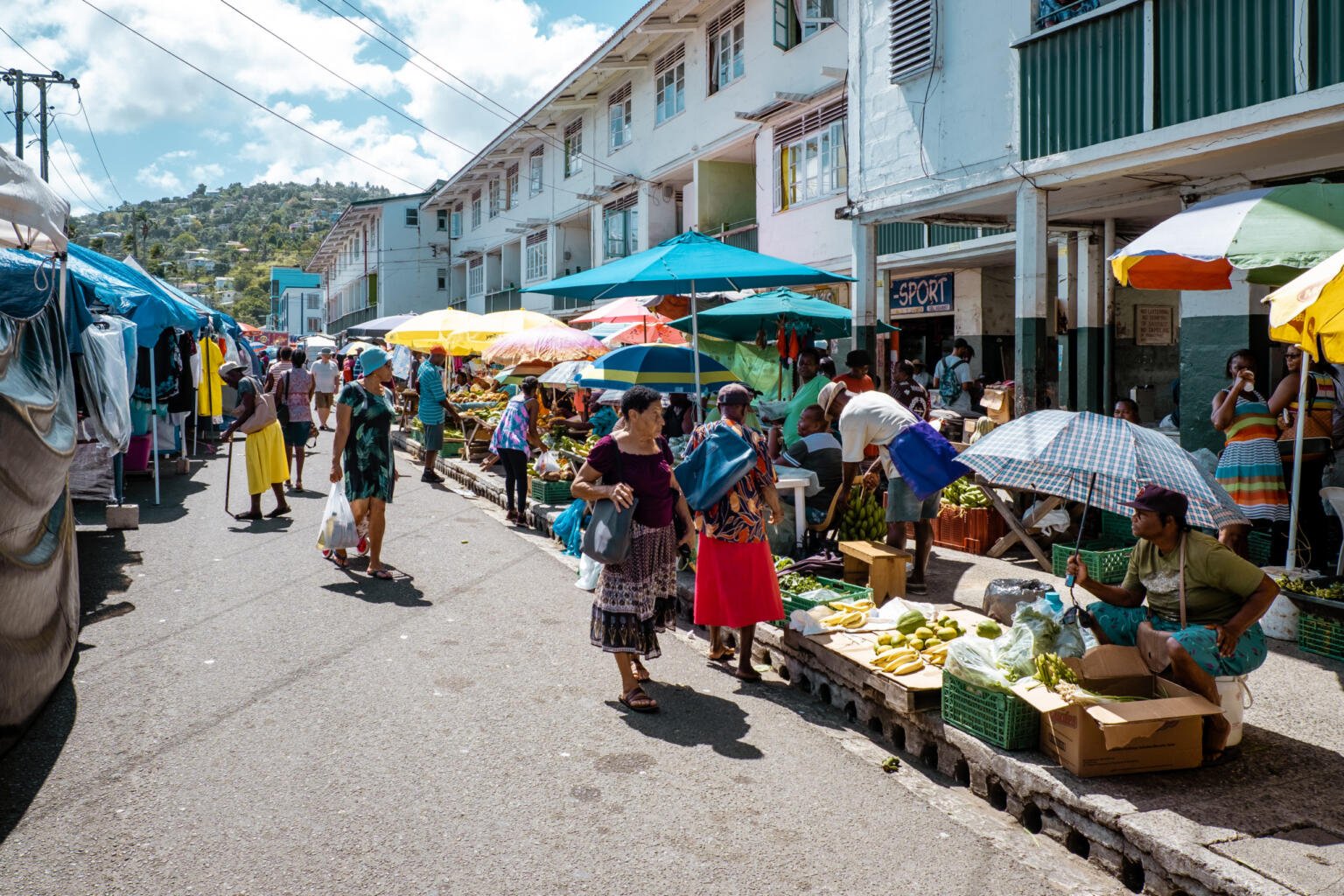
You will, however, need to be very respectful of the local culture and religion. The Caribbean is still a very conservative place, so you might be forced to keep your relationship behind closed doors.
There is plenty of nightlife in Saint Lucia, but unfortunately none targeted towards the LGBTQ+ community. That being said, you can still have a great time here – IF you go by the rules of course…
FAQ about Staying Safe in Saint Lucia
Here are some quick answers to common questions about safety in Saint Lucia.
So, is Saint Lucia Safe?
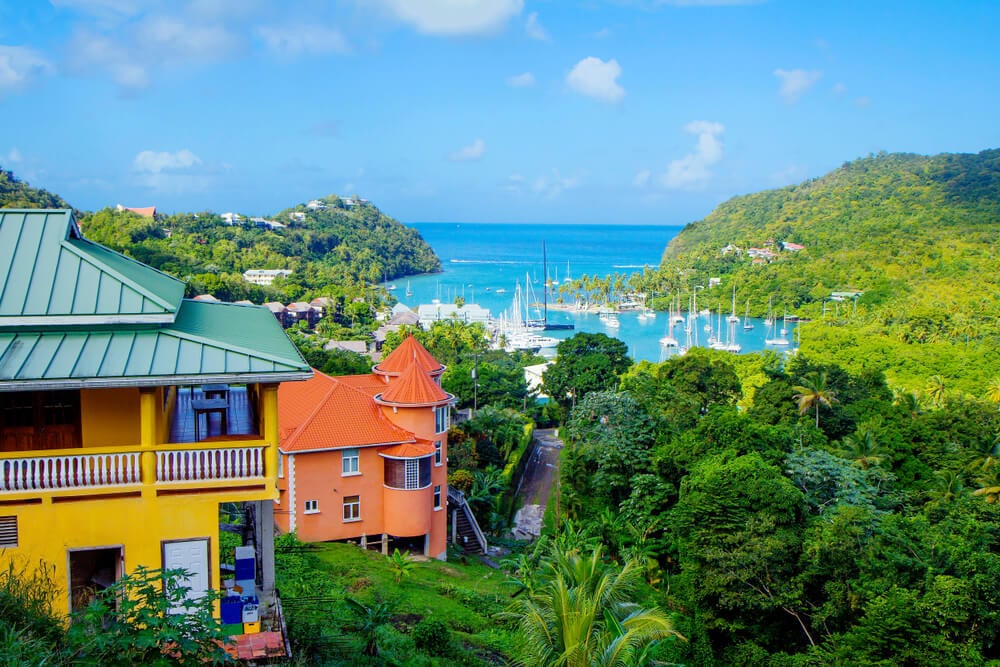
Even with the levels of crime, St Lucia, for the most part, is safe for visitors.
Disclaimer: Safety conditions change all over the world on a daily basis. We do our best to advise but this info may already be out of date. Do your own research. Enjoy your travels!
Buy Us a Coffee!
A couple of you lovely readers suggested we set up a tip jar for direct support as an alternative to booking through our links, since we’ve decided to keep the site ad-free. So here it is!
You can now buy The Broke Backpacker a coffee. If you like and use our content to plan your trips, it’s a much appreciated way to show appreciation 🙂










